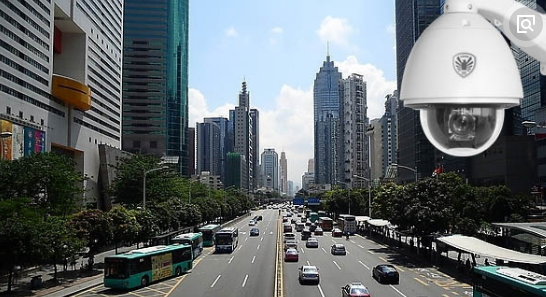Even if some monitoring is necessary, strict management of monitoring data is also necessary. It is necessary for the Forbidden City to monitor the behavior of tourists, and it is more obligated to properly manage the monitoring data and be responsible for the proper use of the monitoring data.
According to media reports, the Forbidden City will build a monitoring center to centrally manage and monitor environmental quality, cultural relic preservation status, lightning protection, infrastructure operation, audience behavior, etc., so as to realize the first time alarm and emergency plan activation.

All kinds of monitoring, only monitor the behavior of the audience, arouse concern. For example, the headline of the newspaper reporting this incident is "Want to destroy cultural relics? The Forbidden City will uniformly monitor the behavior of tourists"; some online media headlines are "The Forbidden City will build a World Cultural Heritage Monitoring Center to monitor the behavior of tourists."
The implementation of general non-directional monitoring of people has always been sensitive. However, people's behavior in public places is generally not privacy. Of course, except for public toilets, guest rooms, fitting rooms, and private rooms. Specifically for the Forbidden City, visitors have no privacy when viewing cultural relics. Protecting cultural relics is not only a major public interest, but also a special responsibility of the Palace Museum. It is necessary for the World Cultural Heritage Monitoring Center of the Palace Museum to include the behavior of tourists in the scope of monitoring.
There was a theft case in the Forbidden City, and the Shi Bokui case in 2011 was a sensation. There have been incidents of improper behavior of tourists in the Forbidden City. In 2015, a female model rode the first nude photos of the Chi in the Forbidden City, which caused an uproar. Monitoring the behavior of tourists does not pose any harm or restriction to ordinary tourists, while improper behaviors can be detected and stopped in time, or evidence can be left for accountability after the fact, and it is also conducive to timely handling of possible emergencies.
People pay attention to the monitoring of tourists in the Forbidden City, and the faint anxiety behind it is of course understandable. In modern society, people are naturally uneasy about surveillance. This is not only because surveillance creates a certain sense of oppression on people, but also because surveillance technology in modern society has developed to a level that makes people invisible. Under network conditions, monitoring data is more likely to spread and be improperly used, which aggravates people's worries.
As a result, people have not only advocated the right to privacy, but also the "right to be forgotten" and the "right to concealment." People don’t want some of their things to disappear, and they don’t want certain information related to them to be under their control; but they want to be able to mix in the crowd without being watched, hope that they will not leave a trace wherever they have been, and hope that their personal information is not. Known by others—regardless of whether this information is traditionally considered private. In the era of networking, digitization, and cloud computing, almost everyone will become transparent under "human flesh search", and it is natural to worry about being "perspected".
In this way, even if some monitoring is necessary, strict management of monitoring data is also necessary. It is necessary for the Forbidden City to monitor the behavior of tourists, and it is more obligated to properly manage the monitoring data and be responsible for the proper use of the monitoring data. Today, when probes are densely populated in public places, from communities, companies to the streets, the management of monitoring data should be like this.
SHAOXING COLORBEE PLASTIC CO.,LTD , https://www.fantaicolorbee.com